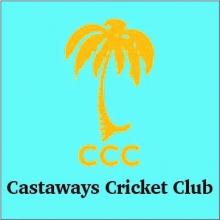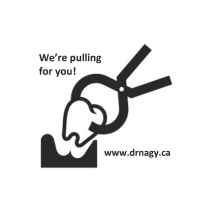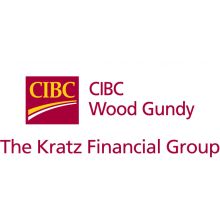Happy New Year

CW wishes everyone all the very best for the New Year - good health, good friends and good times. We remind you to party responsibly! On a rugby note, we include the following, directly quoted, courtesy of Rugby Canada website. It is an article of extreme interest in our opinion. The article covers interviews with Kieran Crowley and Geraint John, NSMT coaches of XV's and VII's. We found Geraint's comments re players and club rugby interesting, not new news but at least a recognition of club issues. See you on the pitch or at The Park - go, CW!
Kieran Crowley -
2013 had more test matches than normal with games in the PNC, RWCQ and November Tour. Do you feel the extra fixtures were important for giving your players more game time and getting first caps for up and coming players?
Having that many games exposes the players to rugby at a high level and it gives us more contact time with them. You’ve got to have the opportunity to see where your depth is and this year was good for us.
There was a lot of work done behind the scenes to get those high-quality games like the Maori All Blacks and Ireland Test, so it was a big benefit for us.
During the PNC your side played 5 games in 26 days and in November you played 4 games in 20 days with all of those games played in different cities and countries. How difficult is this type of schedule on your team?
Each of the teams in the PNC had different styles, so it’s important to get exposed to their different styles of play. The schedule was similar to the World Cup and there was not a lot of down time between games, but that gave us an opportunity develop depth and manage our players. And the good thing about doing that is it gave some of our younger players a chance to step up and put pressure on other players and that creates depth.
On a number of occasions this year there were tight turnarounds between games with a difficult travel schedule, how important is it to experience this because the RWC schedule is similar?
It is difficult, but it is what it is. You’ve got to manage it and turn it into a positive. I thought we coped with it pretty well due to the resilience of the players. Sometimes it doesn’t go your way in games and you’ve got to learn to be able to get through that and it’s the same with a tough travel schedule.
I think the Japan game was just like that, we lost by 3 points in the last couple of minutes and people will say it’s because of the travel, and it might be, but you can’t put that down as an excuse; we’ve got to be better than that. The Georgia game was the same too. So, you’ve got to adapt and be resilient.
The November Tour went 1-2 in Europe and your side battled through a number of injuries and unavailable players. What are your thoughts on the November Tour?
You look at a 1-2 record and it’s disappointing from that perspective. In the Georgia game we were going along quite well until midway through the game where we had a number of injuries. We created a lot of space in that game, but we didn’t move the ball to the space, which was disappointing. If we had done that it might have been a different game and credit goes to Georgia in that area.
The Romania game I thought was one of the better games of the November tour, if not the best game. We saw the space, we moved the ball well but we just didn’t have the skill in the end to hold on to it and score the points. We were a bit undisciplined in the end, but as far as the way we played the game I was quite pleased. The Portugal game we won quite easily, but in the end I don’t think they were as strong of a team as the other two teams.
It was disappointing from a results perspective, but positives were that a number of players that went on tour who wouldn’t normally because of the injury situation and I think a number of them performed very well.
There's less than two years until Canada opens the 2015 RWC at Elland Road against Ireland. Do you feel we're on track for England?
We had a planning meeting the other day and we have a plan that we’ve put together to work on timelines, looking at our players and the games they’re playing from now until then and trying to get them into the competitions that will prepare them. There is a lot of work being done behind the scenes, we’ve created some depth now, but now players need to step up.
We know our pool and we’re playing Ireland, Italy, France and either Georgia or Romania, who both beat us this November, so it’s going to be a massive challenge for us. We’re doing all we can to prepare and we have the PNC, November Tour and other projects next year and in 2015 to make sure we’re prepared.
As someone who's been around the game a long time, and played in front of large crowds, how exciting was it for you and your team to have over 20,000 fans in Toronto for the Ireland and NZ Maori All Blacks games?
It’s great for Canada rugby, if you look at where rugby has been in years past and because there’s no professional leagues and it’s not a mainstream sport,
A lot of work has been done by office staff, board members and people behind the scenes to try and get big games and proper venues, and I think when you turn up to a game like Ireland and the NZ Maori game, it’s a credit to those people. We as players and coaches have a responsibility when we get on that stage to put forward a performance that will hopefully bring 20,000 fans back next year and we have to knock off one of those teams to go even further forward. I know the players really enjoy it too.
Geraint John –
2013 has been a busy year for the men's sevens program. What are your overall thoughts on the year?
Overall I’m pleased. We set a goal to be a core team, which we did. I thought at the World Cup to finish 5-1 and only lose to the eventual Champions from New Zealand was a major plus and I thought we did really well in Moscow.
Also, I’m pleased with the creation of the Maple Leafs to go to tournaments like the World Games, NACRA and Victoria 7s to get more young players involved in the game. I think overall we can say that it was a busy year and a successful year.
The HSBC Sevens World Series has continued to become more competitive and overall more of a physically demanding sport. How do you and your medical staff take care of your players during and in between tournaments?
On tour we have to be careful with our players and usually between the two tournaments we see the second week as more of a recovery time rather than as much work as we would normally do.
We just went through a series of meetings over the last 10 days to recap Dubai and South Africa and what we need to do. In Dubai we ended up losing two players and I think all of the teams except three lost players through injury, so teams need a deeper squad. Your conditioning and what you do with players before going on tour is more important and we’re going to look deeper into that and spend more time looking in detail to what we’re doing with the players and specific players.
Leading into the New Year there’s going to be a major emphasis on conditioning. The game is becoming more physical. The stats show there’s more tackling, defense is more organized and the days where teams used to play a slow, drifting style defense are gone and they’re now blitzing up like in fifteens.
We’re spending more time with conditioning in the gym and on the field, combat work and training is becoming more physical and demanding because that’s the nature of the game.
You and Kieran Crowley share a number of players between 7s and 15s duties. It must take a considerable amount of planning and organization to monitor game time and prepare your players?
It’s pretty hard. I think the November and December period this year was difficult because we had more Sevens players on the Fifteens team than ever before. When we look back on what happened in the fall of 2012, we didn’t have as many Sevens players starting for Fifteens and I think that could be due to how these players are developing through the Sevens program and they’ve shown that they can play in Fifteens, which is a bonus for the program.
We monitor their playing minutes, which is one key element we do. I know some clubs would like the players to play club rugby as well, but we need to be conscious of their game time. We can’t expect our key 7s and 15s players to be involved in club rugby as well, because they’ve been a part of a lot of international rugby and also the CRC, ARC. We just had a busy November series with 7s and 15s and next year we’ve got the IRB Sevens Series, June tests, Commonwealth Games and before we know it, it will be September and we’re 12 months away from the 2015 Rugby World Cup. So, sometimes we’ve got to make hard decision to tell players that they can’t play some club rugby. It’s nothing against them or against the club, it’s because we’re looking after the welfare of the players and they need the right physical and mental training and recovery time to make sure they’re able to compete at the international level.
Day in, day out your centralized athletes train at the Canadian Rugby Centre of Excellence in Langford. Please explain what the High Performance training environment looks like for your players.
The players come in five days a week, including on Saturdays, and they’re in at 7 or 7:30am in the morning until 2:30 or 3pm in the afternoon. One day we do 3pm – 9pm. We feed the players because nutrition is important; we do mobility every single day from
an injury prevention perspective. We have to make sure that the players do all of the necessary exercises to help strengthen key areas, which helps them on the field but also in the weight room.
We have a normal weight training program and we divide the rugby sessions into key elements in terms of offense, defense. We do combat work and wrestling work in the gym. We try to combine all of these activities into a week.
We give the players Wednesday’s off for recovery, but also support them if they want to go to school. Players need to be educated, we think that’s important, and their choices for life after rugby. It gives them time to go to University, go to school, get some work done to make some extra money and to rest.
During the week they have to find time to do some analysis and we send them videos, we have an analysis suite where they can watch games and work with our Performance Analyst. We also have a Sport Psychologist and a Sports Nutritionist to work with them.
Also, the players need to be treated. So during the week they need to find time to fit that into their program. So, even though we say they’re only here for a certain time each day you can probably add another 2-3 hours per day where the players end up doing a lot of work.
These players are taking part in an almost a full-time, professional environment but aren’t necessarily earning the professional wage that players may get overseas.
In 2014 your side will continue to compete on the HSBC Sevens World Series AND will take part in the Commonwealth Games. What are the key events and goals for you in 2014?
One is for us to continuously be competitive on the HSBC Sevens World Series. We’ve played in three events so far this year, and it’s always a goal of ours to make it into the Cup rounds, and we haven’t done that this year. So that’s something we want to aim to do.
However, we do have key objectives at each tournament that we want to achieve in terms of with the ball versus without the ball and the KPIs we’ve put together. We didn’t do very well in the last Commonwealth Games in India and we’re going to Glasgow. It’s an event that we want to strive to do well and last time we didn’t finish in the Top 10 but this year we’re going for the Top 8 or Top 6, which we feel we can do. That’s something we’ll aim for.
But, the Commonwealth Games aren’t until July so we have the rest of the Series and a busy June IRB Test Window. Also we’re not that far away from our Olympic qualifiers, which we know will be in 2015 so for us it’s about our planning, preparation and developing the depth of players, entering more tournaments with our Maple Leafs Teams and growing the game for the 17, 18, 19, and 20-year-olds who could be on the team in 2015, 2016 and beyond. It’s important that we do that for the players and for coaches.
So, competitive on the IRB Sevens circuit, looking forward to the Commonwealth Games in Glasgow and maintain core status for next year’s Series.
I would like to say a big thanks to all players and staff involved. They put many hours in to help make the team successful and we ask a a lot from all our players and staff. They make big sacrifices and put their life on hold which I and Rugby Canada are very grateful.




























